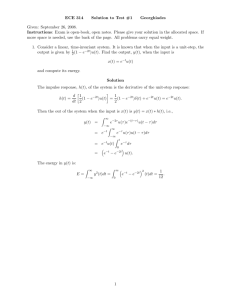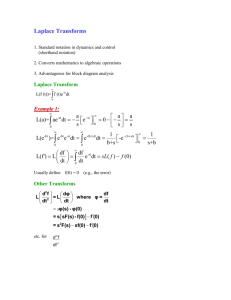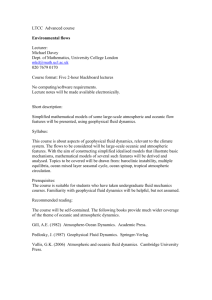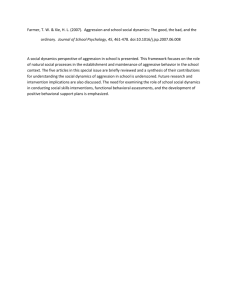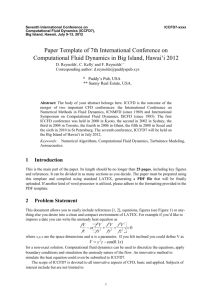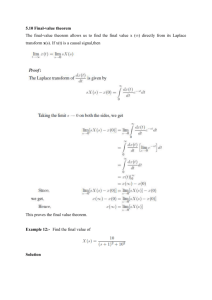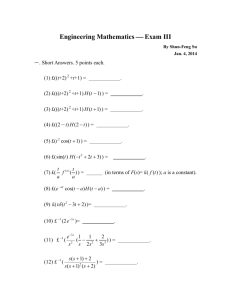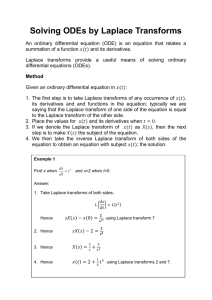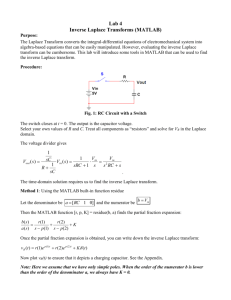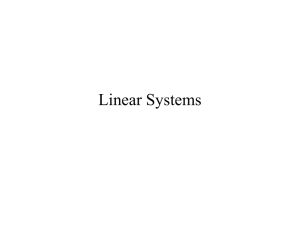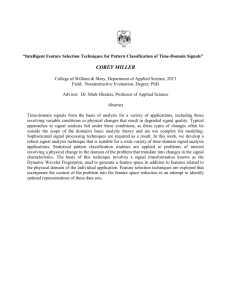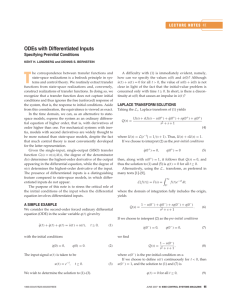Word - IPFW.edu
advertisement
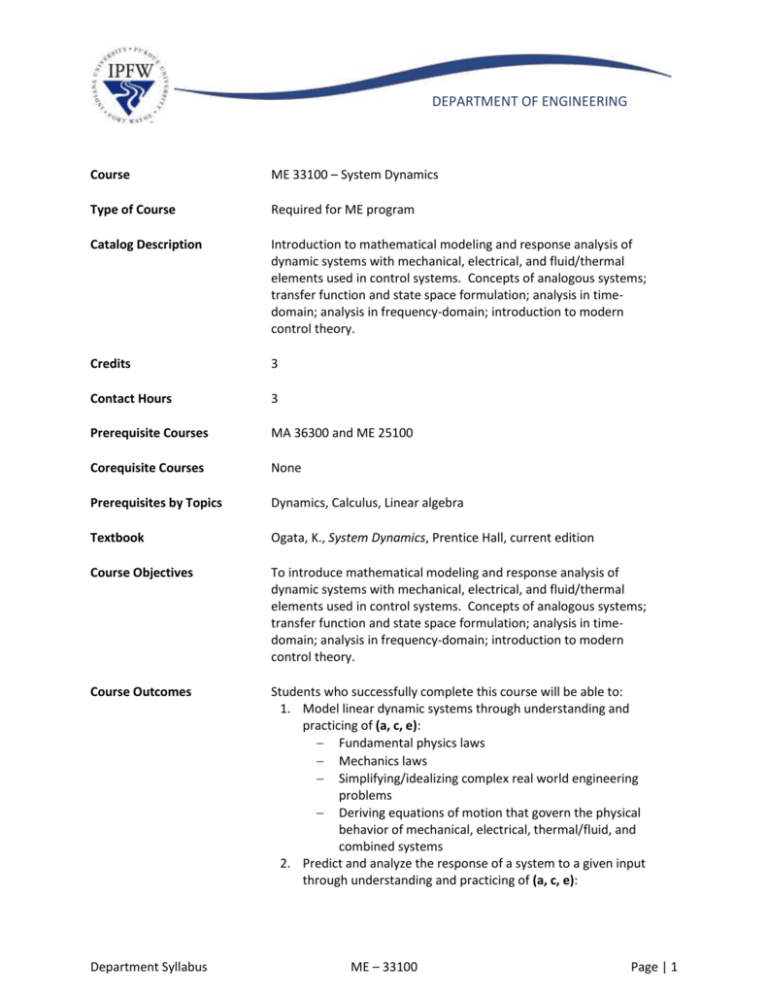
DEPARTMENT OF ENGINEERING Course ME 33100 – System Dynamics Type of Course Required for ME program Catalog Description Introduction to mathematical modeling and response analysis of dynamic systems with mechanical, electrical, and fluid/thermal elements used in control systems. Concepts of analogous systems; transfer function and state space formulation; analysis in timedomain; analysis in frequency-domain; introduction to modern control theory. Credits 3 Contact Hours 3 Prerequisite Courses MA 36300 and ME 25100 Corequisite Courses None Prerequisites by Topics Dynamics, Calculus, Linear algebra Textbook Ogata, K., System Dynamics, Prentice Hall, current edition Course Objectives To introduce mathematical modeling and response analysis of dynamic systems with mechanical, electrical, and fluid/thermal elements used in control systems. Concepts of analogous systems; transfer function and state space formulation; analysis in timedomain; analysis in frequency-domain; introduction to modern control theory. Course Outcomes Students who successfully complete this course will be able to: 1. Model linear dynamic systems through understanding and practicing of (a, c, e): Fundamental physics laws Mechanics laws Simplifying/idealizing complex real world engineering problems Deriving equations of motion that govern the physical behavior of mechanical, electrical, thermal/fluid, and combined systems 2. Predict and analyze the response of a system to a given input through understanding and practicing of (a, c, e): Department Syllabus ME – 33100 Page | 1 Proper mathematical tools to solve differential equations of motion Time-domain analysis Frequency domain analysis State-space analysis 3. Design simple dynamic systems for controlled outputs through understanding and practicing of (a, c, e, g, k): Application of modern computing tools Open-end design project(s) Lecture Topics Fundamentals of System Dynamics Introduction to System Dynamics - Math review - Terms and Definitions The Laplace Transform - Complex functions - Laplace transforms of elementary function - Final value theorem and initial value theorem - Inverse Laplace transform - Solving ODE’s with Laplace transform technique Modeling of Physical Systems and Equations of Motion Mechanical Systems Electrical Systems and Electromechanical Systems Fluid Systems and Thermal Systems Transfer Function Approach to Modeling Dynamic Systems State-Space Approach to Modeling Dynamic Systems System Response Analysis Time-Domain Analysis of Dynamic Systems - transient response Analysis of 1st and 2nd order systems Frequency-Domain Analysis of Dynamic Systems - Steady state (Frequency) response Analysis of 1st and 2nd order systems Computer Usage Medium Laboratory Experience None Design Experience Low Coordinator Bongsu Kang, Ph.D. Date 31 March 2011 Department Syllabus ME – 33100 Page | 2
